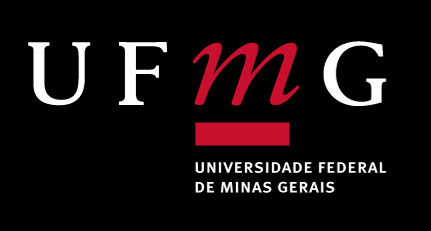Modernidade, racionalização e natureza
DOI:
https://doi.org/10.35699/2237-549X..13223Keywords:
modernity, nature, rationalizationAbstract
Max Weber has outlined, in several works, that modernity is characterized by six processes: the disenchantment and intellectualization of the world; the emergence of an ethos of impersonal and secular realization; the growing importance of technical knowledge, specialized in economy, administration and education; the objectification and depersonalization of right, economy and the political organization of the State; the progressive development of technically rational means to control man and nature; and the tendency of dislocating the orientation from traditional to purely instrumental action. In spite of the different historical roots, these processes are connected by the fact that all of them favor the formal rather than the substantive rationality. In order to develop this study we have assumed the postulate which affirms that the comprehension of a phenomenon is found in the meaning that the individuals attribute to their actions. Besides, we intend to understand how this process of rationalization generated a framework of values which contributed to establish a new basis to the relation man versus nature.
Downloads
References
BACON, Francis. Novo organum ou verdadeiras indicações acerca da interpretação da natureza. São Paulo: Nova Cultura, 1999. (Coleção Os Pensadores).
BAUMER, Franklin L. O pensamento europeu moderno: séculos XIX e XX. Lisboa: Edições 70, 1990. v. 2.
BRONOWSKI, J. A escalada do homem. São Paulo: Martins Fontes, 1992.
DESCARTES, René. Discurso do método. São Paulo: Nova Cultura, 1999. (Coleção Os Pensadores). FERRY, Luc. A nova ordem ecológica. São Paulo: Ensaio, 1994.
HAECKEL, Ernst Heinrich Philipp August. A origem do homem. São Paulo: Global, 1982.
HAECKEL, Ernst Heinrich Philipp August. O monismo: laço entre a religião e a ciência. Porto: Livraria Lello & Irmão, 1947.
HARVEY, David. A condição pós-moderna. São Paulo: Loyola, 1993. KONDER, Leandro. Kafka. Rio de Janeiro: José Alvaro Editor, 1967.
KUMAR, Krishan. Da sociedade pós-industrial à pósmoderna. Rio de Janeiro: Jorge Zahar, 1997. LENOBLE, Robert. História da idéia de natureza. Lisboa: Edições 70, 1990.
MARX, Karl. O capital. Rio de Janeiro: Ed. Abril, 1986. v. 1.
MATOS, Olgária. Filosofia, a polifonia da razão. São Paulo: Scipione, 1997.
NOBRE, Renarde Freire. Racionalidade e tragédia cultural no pensamento de Max Weber. Tempo Social, São Paulo, v. 12, p. 85-108, nov. 2000.
OUTHWAITE, William; BOTTOMORE, Tom. Dicionário do pensamento social do século XX. Rio de Janeiro: Jorge Zahar, 1996.
SACHS, Wolfgang. Development: the rise and decline of an ideal. Wuppertal Papers, London, n. 108, p. 4-29, Aug. 2000.
SAFRANSKI, Rüdiger. Nietzsche, biografia de uma tragédia. São Paulo: Geração Editorial, 2000.
SANTOS, Boaventura de Sousa. Um discurso sobre as ciências. Porto: Afrontamento, 1987.
SCHNAPPER, Dominique. A compreensão sociológica. Lisboa: Gradiva, 2000.
SERRES, Michael. Contrato natural. Rio de Janeiro: Nova Fronteira, 1991.
SOUZA, Jessé. Patologias da modernidade: um diálogo entre Habermas e Weber. São Paulo: Annablume, 1997.
SZTOMPKA, Piotr. A sociologia da mudança social. Rio de Janeiro: Civilização Brasileira, 1998.
THOMAS, Keith. O homem e o mundo natural: mudanças de atitude em relação às plantas e aos animais. São Paulo: Companhia das Letras, 1989.
THONNARD, François Joseph. Compêndio de história da filosofia. São Paulo: Herder, 1968.
WALDMA, Maurício. Natureza e sociedade como espaço de cidadania. In: PINSKY, Jaime; PINSKY, Carla Bassanezi (Org.). História da cidadania. São Paulo: Contexto, 2003. p. 545-557
WEBER, Max. A ética protestante e o espírito do capitalismo. São Paulo: Martin Claret, 2002.
WEBER, Max. Conceitos sociológicos fundamentais. Lisboa: Edições 70, 2005. WEBER, Max. Economia e sociedade. Brasília: Ed. UNB, 2000. v. 1.
WEBER, Max. Ensaios de sociologia. Rio de Janeiro: Zahar, 1964.
WEBER, Max. Metodologia das ciências sociais. São Paulo: Cortez, 2001.
ZHOURI, Andréa; LASCHEFSKI, Klemens; PEREIRA, Doralice Barros. Desenvolvimento, sustentabilidade e conflitos socioambientais. In: ZHOURI, Andréa; LASCHEFSKI, Klemens; PEREIRA, Doralice Barros (Org.). A insustentável leveza da política ambiental: desenvolvimento e conflitos socioambientais. São Paulo: Autêntica, 2005. p. 5-18.
Downloads
Published
How to Cite
Issue
Section
License
Copyright (c) 2007 Chyara Sales Pereira

This work is licensed under a Creative Commons Attribution 4.0 International License.
Os artigos desta revista obedecem a licença Creative Commons — Attribution 4.0 International — CC BY 4.0









